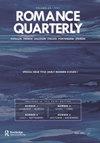El legado de la Ilustración en Hombres buenos de Arturo Pérez-Reverte
IF 0.2
3区 文学
0 LITERATURE, ROMANCE
引用次数: 0
Abstract
Abstract This paper aims to analyze how Arturo Pérez-Reverte claims the legacy of the Enlightenment in his historical novel Hombres buenos (2015). The history of two members of the Real Academia Española, in charge of travelling to Paris in the hopes of obtaining all the volumes of the Encyclopedia and bringing them to Spain, allows Pérez-Reverte to create an original account of eighteenth-century Spain. Pérez-Reverte belongs to an intellectual tradition that depicts the Hispanic Enlightenment as inexistent, incomplete, insufficient, or unoriginal. At the same time, however, he keeps his distance from such tradition, by questioning the consensual image of a civilized and enlightened France, and by showing that Spaniards also participated in the creation and dissemination of the Enlightenment. This paper also analyzes how the fictitious account of the eighteenth century is nor only a defense of enlightened Spaniards, but also a way to express desires for the twenty-first century, especially regarding the political and linguistic unity of Spain.Arturo perez - reverte的《好人》中的启蒙遗产
摘要本文旨在分析阿图罗·佩雷斯·雷维特(Arturo Pérez Reverte)在其历史小说《人》(Hombres buenos)(2015)中如何宣称启蒙运动的遗产。西班牙皇家科学院(Real Academia Española)的两名成员负责前往巴黎,希望获得百科全书的所有书籍并将其带到西班牙,他们的历史使佩雷斯·雷维特(Pérez Reverte)能够创建一个关于18世纪西班牙的原始记述。Pérez Reverte属于一种知识传统,将西班牙裔启蒙运动描述为不存在、不完整、不充分或没有独创性。然而,与此同时,他与这种传统保持距离,质疑文明和开明的法国的共识形象,并表明西班牙人也参与了启蒙运动的创造和传播。本文还分析了18世纪的虚构故事不仅是对开明的西班牙人的辩护,也是表达21世纪愿望的一种方式,尤其是关于西班牙政治和语言统一的愿望。
本文章由计算机程序翻译,如有差异,请以英文原文为准。
求助全文
约1分钟内获得全文
求助全文
来源期刊

ROMANCE QUARTERLY
LITERATURE, ROMANCE-
CiteScore
0.30
自引率
50.00%
发文量
18
期刊介绍:
Lorca and Baudelaire, Chrétien de Troyes and Borges. The articles in Romance Quarterly provide insight into classic and contemporary works of literature originating in the Romance languages. The journal publishes historical and interpretative articles primarily on French and Spanish literature but also on Catalan, Italian, Portuguese, and Brazilian literature. RQ contains critical essays and book reviews, mostly in English but also in Romance languages, by scholars from universities all over the world. Romance Quarterly belongs in every department and library of Romance languages.
 求助内容:
求助内容: 应助结果提醒方式:
应助结果提醒方式:


